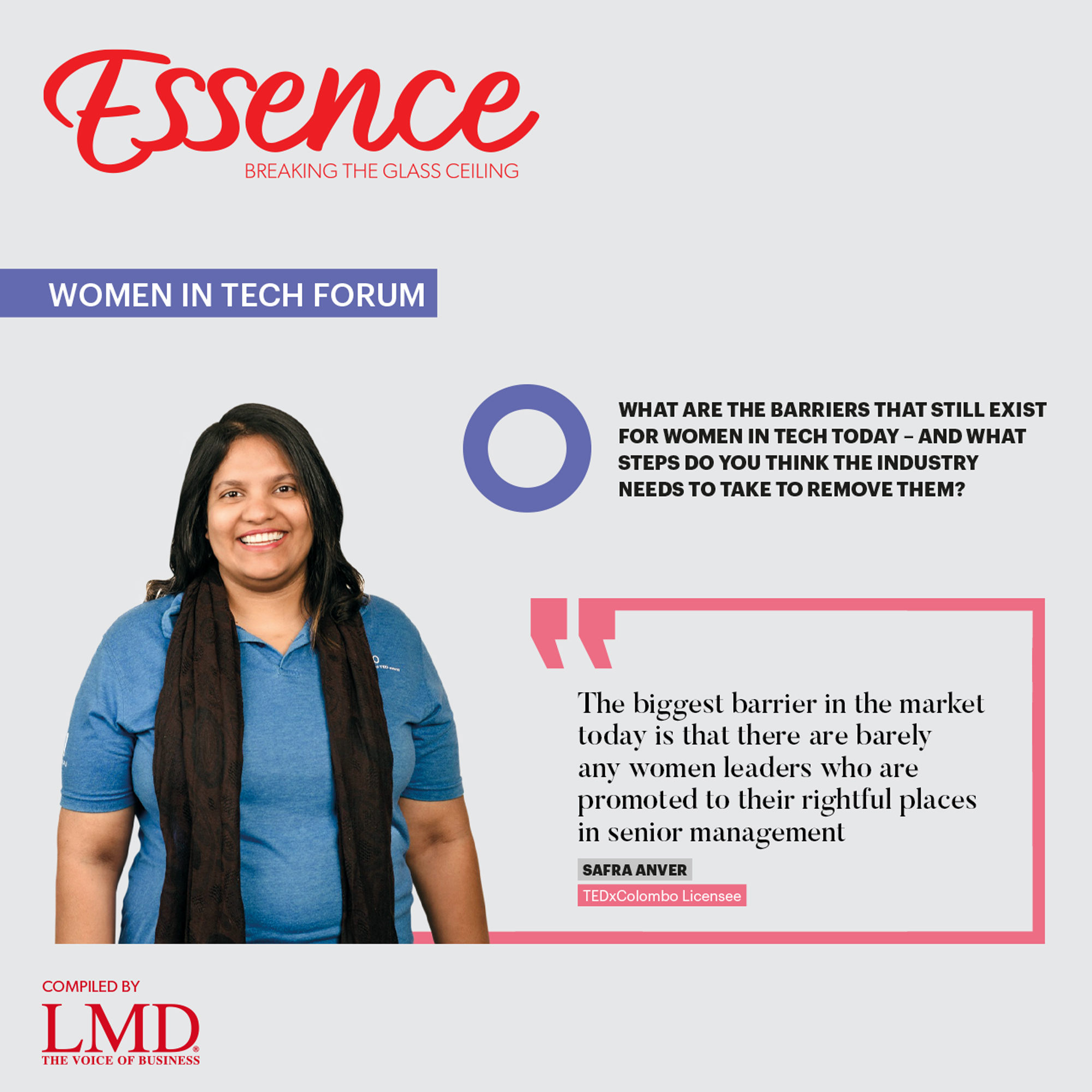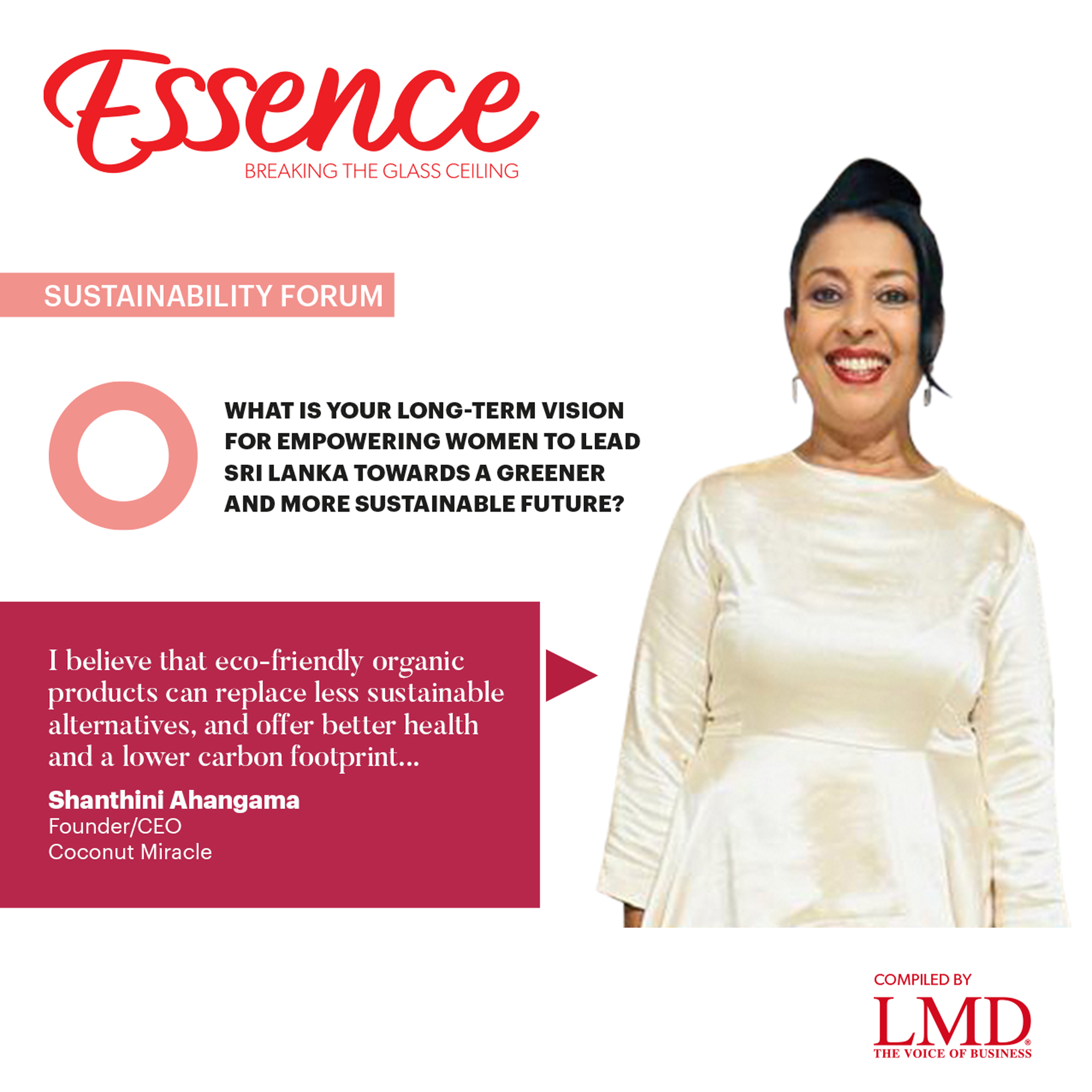COMMERCIAL BANK OF CEYLON
 Q: How does female participation in conventional careers compare with non-conventional fields?
Q: How does female participation in conventional careers compare with non-conventional fields?
A: Generally, most women participate in conventional semi-skilled labour-intensive industries – i.e. domestic and plantation agriculture, traditional local and assembly line industries, the education and healthcare sectors, and domestic service.
Few women have been able to advance beyond the glass ceiling to reach high-level decision-making positions in conventional and non-conventional fields, probably owing to patriarchal values embedded in our society.
However, their contribution to the country’s foreign exchange income through engagement in the tea and garment industries, and as migrant workers, is substantial.
Many girls aren’t encouraged to pursue studies in STEM fields, which would lead them to undertake non-conventional careers that are still viewed as being male dominated. But females account for nearly half of undergraduate STEM enrolments, which is encouraging.
 Q: What more should be done to empower women in the workforce?
Q: What more should be done to empower women in the workforce?
A: Women have also created their own barriers, limitations and glass ceilings. Therefore, it’s important to change these perceptions and attitudes through education.
Female representation at the board level is quite low despite some gains in the private sector.
As for financial institutions, both financial and non-financial services could be extended to support and connect with markets while tailoring assistance based on cash flows.
There should be a special focus on economically underprivileged women, female victims of the civil conflict, and plantation and returning migrant workers.
Vocational training – especially in nontraditional areas – could be offered to women pursuing self-employment to encourage entrepreneurship; and support should be extended in areas such as financial literacy, technology and market information.
Q: Are women being supported to reach their potential?
A: Yes and no. The free education system introduced in 1938 opened up knowledge and skill opportunities to all children irrespective of gender, race or religion. Recording a literacy rate over 96 percent, we can reap the system’s benefits today.
Talking about supporting women in reaching their full potential, addressing the impact of the pandemic and the need to support them during these trying times is important. The lives and livelihoods of working and self-employed women, businesswomen and housewives have been particularly disrupted.
Support that was available to working women with schools, childcare and even elderly care has been disturbed; and this has affected careers, jeopardising their financial security and intensifying the challenges they already faced.
This is also an opportunity for corporates to attract and retain female employees, by building a more flexible and empathetic workplace. This will help nurture a culture in which women have equal opportunities to achieve their potential over the long term.
 Q: How crucial is women’s inclusion in the workforce?
Q: How crucial is women’s inclusion in the workforce?
A: Sustainable economic growth is unthinkable without women being in the equation – and taking measures to include them in the workforce is imperative for growth and social progress.
Higher female earnings greatly contribute to children’s education, family health and wellness, thereby impacting a nation’s economic growth and holistic development.
Women comprise over half the population and ignoring this talent pool doesn’t make sense at any level – even more so as Sri Lanka’s labour force is expected to begin shrinking in as early as 2026 with a growing ageing population.
Understanding this, Commercial Bank initiated its Gender Advisory Project with the IFC’s guidance to ascertain women’s needs and help them contribute to the economy. This 360 degree approach will focus on financial and non-financial aspects.
As one of the country’s largest corporates, we’ve always provided equal opportunities to all stakeholders – especially customers and employees – ensuring we uphold the principles of justice and fairness, irrespective of gender, race or religion.
The bank received the award for the ‘Best CSR Project on Women Empowerment by an Organization’at the Top50 Professional and Career Women Awards for Sri Lanka and the Maldives.





